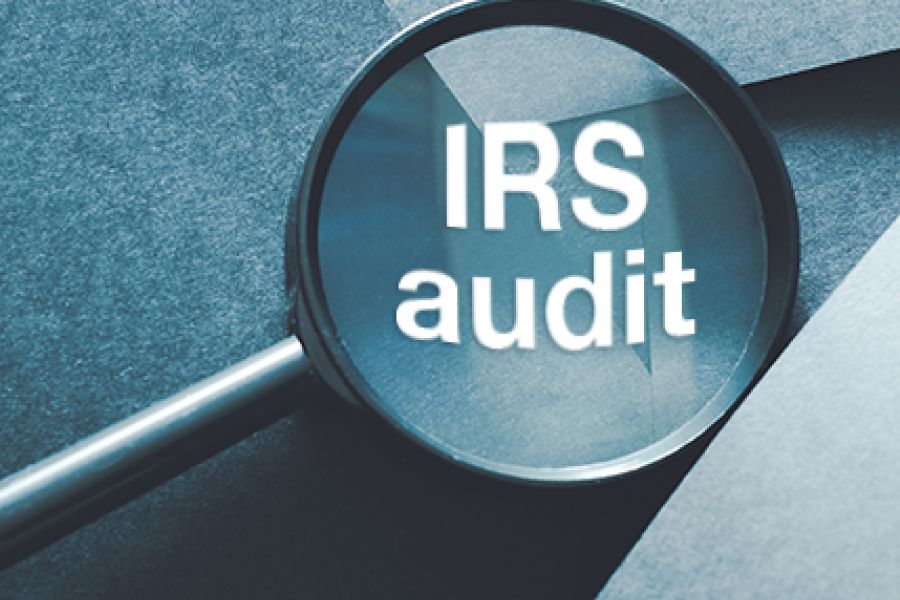When market competition heats up, you might provide extra incentives for your sales staff to perform. But be careful: Some employees may step over the line — to earn bigger bonuses or out of enthusiasm for the challenge — and use unethical sales tactics. Take steps to ensure your salespeople always walk an ethical line and operate with integrity. Walk an ethical line: make a commitment to honesty Culture starts at the top. If you clearly demonstrate, through both words and behavior, your commitment to honesty, your sales team will get the message. Your customers will too. Try to anticipate the challenges your sales force may face as they attempt to meet sales goals. The temptation to sell more than your company can deliver, for example — or...

As an employer, you must pay federal unemployment (FUTA) tax on amounts up to $7,000 paid to each employee as wages during the calendar year. The rate of tax imposed is 6% but can be reduced by a credit (described below). Most employers end up paying an effective FUTA tax rate of 0.6%. An employer taxed at a 6% rate would pay FUTA tax of $420 for each employee who earned at least $7,000 per year, while an employer taxed at 0.6% pays $42. That said, what are you doing toward controlling unemployment tax costs of your business? Tax credit Unlike FICA taxes, only employers — and not employees — are liable for FUTA tax. Most employers pay both federal and a state unemployment tax. Unemployment tax...
As we head toward the gift-giving season, you may be considering giving gifts of cash or securities to your loved ones. The gift tax exclusion rules are advantageous as they give taxpayers the ability to transfer substantial amounts free of gift taxes to their children and others each year. The amount is adjusted for inflation annually. For 2019, the exclusion is $15,000. The exclusion covers gifts that you make to each person, each year. Therefore, if you have three children, you can transfer a total of $45,000 to them this year (and next year) free of federal gift taxes. If the only gifts made during the year are excluded in this way, there’s no need to file a federal gift tax return. If annual gifts exceed...
Many business owners ask: How can I avoid an IRS audit? The good news is that the odds against being audited are in your favor. In fiscal year 2018, the IRS audited approximately 0.6% of individuals. Businesses, large corporations and high-income individuals are more likely to be audited but, overall, audit rates are historically low. That said, business owners should be prepared. There’s no 100% guarantee that you won’t be picked for an audit, because some tax returns are chosen randomly. However, completing your returns in a timely and accurate fashion with our firm certainly works in your favor. And it helps to know what might catch the attention of the IRS. Business owners should be prepared: audit red flags A variety of tax-return entries may raise red...
The Web has opened plenty of new avenues for criminal behavior. For example, you may have heard of cybersquatting. Someone registers a site’s domain name that includes a trademark and then tries to profit by selling that name to the trademark owner. But are you familiar with typosquatting? You should be because typosquatters profit from common user errors. These schemes can make just about any organization, along with visitors to its website, the victims of fraud. Fat fingers Like cybersquatting, typosquatting (also known as URL hijacking) involves the purchase of domain names in bad faith. It takes advantage of an inclination among users known as “fat fingers” — basically, our tendency to hit the wrong keys and enter misspelled trademarks or brands. For example, in a case involving...
Traditionally, trusts used in estate planning contain “Crummey” withdrawal powers to ensure that contributions qualify for the annual gift tax exclusion. Today, the exclusion allows you to give up to $15,000 per year ($30,000 for married couples) to any number of recipients. Now that the gift and estate tax exemption has reached an inflation-adjusted $11.4 million, fewer people have to worry about gift and estate taxes. But, for many affluent people, the annual exclusion continues to be an important estate planning strategy. Thus, Crummey trusts are still relevant. Reasons to make annual exclusion gifts Despite the record-high exemption, there are two important reasons to make annual exclusion gifts. First, if your wealth exceeds the exemption amount, an annual gifting program can reduce or even eliminate your liability for...
You may have Series EE savings bonds that were bought many years ago. Perhaps you store them in a file cabinet or safe deposit box and rarely think about them. You may wonder how the interest you earn on EE bonds is taxed. And if they reach final maturity, you may need to take action to ensure there’s no loss of interest or unanticipated tax consequences. Series EE Savings Bonds: Interest Deferral Series EE Bonds dated May 2005 and after earn a fixed rate of interest. Bonds purchased between May 1997 and April 30, 2005, earn a variable market-based rate of return. Paper Series EE bonds were sold at half their face value. For example, if you own a $50 bond, you paid $25 for it. The...
Affinity fraud is particularly heinous. Perpetrators exploiting connections of race, religion, age, politics and profession is one of the cruelest forms of criminal deception. Fraudsters often belong to the groups they target and, in addition to stealing money, weaken the bonds within communities. Affects individuals and businesses Affinity fraud targets individuals. But it can also hurt businesses if a big chunk of their workforce is affected. If your company employs a large percentage of immigrants, for example, they may be susceptible to fraud perpetrated by other immigrants and could, as a result, be left penniless. In addition to the effect such emotional trauma can have on company morale, it could make employees more susceptible to stealing in their own efforts to recoup their losses. Even people who usually...
These days, most businesses need a website to remain competitive. It’s an easy decision to set one up and maintain it. But determining the proper tax treatment for the costs involved in developing a website isn’t so easy. That's because the IRS hasn’t yet released guidance on business website cost tax treatment. Consequently, you must apply existing guidance on other costs to the issue of website development costs. Hardware and software First, let’s look at the hardware you may need to operate a website. The costs involved fall under the standard rules for depreciable equipment. Specifically, once these assets are up and running, you can deduct 100% of the cost in the first year they’re placed in service (before 2023). This favorable treatment is allowed under the...
We all know the cost of college is expensive. The latest figures from the College Board show that the average annual cost of tuition and fees was $10,230 for in-state students at public four-year universities — and $35,830 for students at private not-for-profit four-year institutions. These amounts don’t include room and board, books, supplies, transportation and other expenses that a student may incur. If only there were tax credits for college costs. Two tax credits Fortunately, the federal government offers two sizable tax credits for college costs that you may be able to claim: The American Opportunity credit. This tax break generally provides the biggest benefit to most taxpayers. The American Opportunity credit provides a maximum benefit of $2,500. That is, you may qualify for a...
- 1
- 2
- 3
- 4
- 5
- 6
- 7
- 8
- 9
- 10
- 11
- 12
- 13
- 14
- 15
- 16
- 17
- 18
- 19
- 20
- 21
- 22
- 23
- 24
- 25
- 26
- 27
- 28
- 29
- 30
- 31
- 32
- 33
- 34
- 35
- 36
- 37
- 38
- 39
- 40
- 41
- 42
- 43
- 44
- 45
- 46
- 47
- 48
- 49
- 50
- 51
- 52
- 53
- 54
- 55
- 56
- 57
- 58
- 59
- 60
- 61
- 62
- 63
- 64
- 65
- 66
- 67
- 68
- 69
- 70
- 71
- 72
- 73
- 74
- 75
- 76
- 77
- 78
- 79
- 80
- 81
- 82
- 83
- 84
- 85
- 86
- 87
- 88
- 89
- 90
- 91
- 92
- 93
- 94
- 95
- 96
- 97
- 98
- 99
- 100
- 101
- 102
- 103
- 104
- 105
- 106
- 107
- 108
- 109
- 110
- 111
- 112
- 113
- 114
- 115
- 116
- 117
- 118
- 119
- 120
- 121
- 122
- 123
- 124
- 125
- 126
- 127
- 128
- 129
- 130
- 131
- 132
- 133
- 134
- 135
- 136
- 137
- 138
- 139
- 140
- 141
- 142
- 143
- 144
- 145
- 146
- 147
- 148
- 149
- 150











